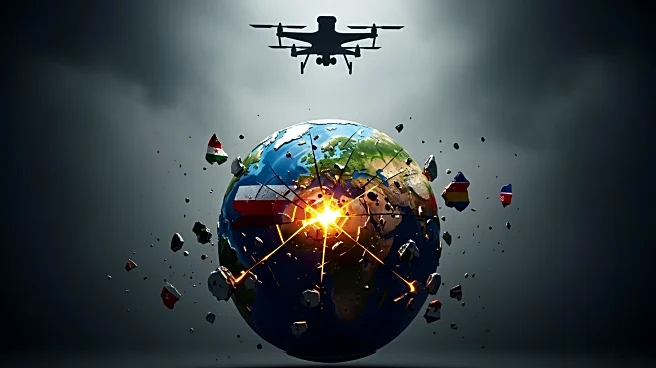What's Happening?
UN Secretary-General Antonio Guterres has strongly condemned a recent Russian drone and missile assault on Ukraine, which has been described as the largest such attack in the three-year war. The strikes
disrupted power supply to the Zaporizhzhia Nuclear Power Plant, raising concerns about nuclear safety. Ukrainian officials reported that Moscow fired over 500 drones and 11 missiles at Kyiv, resulting in civilian casualties and widespread damage. The attack comes amid stalled US-led efforts to reach a ceasefire.
Why It's Important?
The escalation in Russian attacks poses significant risks to civilian populations and nuclear safety in Ukraine. The disruption of power supply to the Zaporizhzhia Nuclear Power Plant highlights the potential for a nuclear disaster, underscoring the need for urgent international intervention. The situation exacerbates the humanitarian crisis, with millions of people in need of assistance. The stalled diplomatic efforts to achieve a ceasefire highlight the challenges in resolving the conflict and protecting civilian lives.
What's Next?
The UN is likely to continue advocating for a ceasefire and increased humanitarian aid to address the needs of affected populations. Diplomatic efforts to broker peace may intensify, with potential involvement from international stakeholders. The humanitarian community may seek additional funding and resources to support relief operations in Ukraine. The situation remains fluid, with potential for further military and diplomatic developments.
Beyond the Headlines
The ongoing conflict in Ukraine raises ethical questions about the use of aerial attacks in warfare, particularly the impact on civilian populations. The situation may prompt discussions on the need for international regulations governing the use of explosive weapons in populated areas. The conflict's impact on regional security dynamics could lead to shifts in military alliances and defense strategies among European nations.










